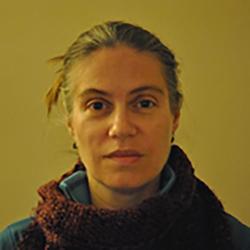Maria Aliberti Lubertazzi

Maria Aliberti Lubertazzi is an environmental scientist and educator who specializes in invertebrate biology, landscape ecology and freshwater wetland ecology. She completed her PhD at the University of Rhode Island in 2009, where she studied emerging dragonfly communities at small wetlands along an urban to rural gradient throughout Rhode Island. She has done extensive work with all manner of freshwater invertebrate faunas and some field research on moths, ants and the biological control of pest insects. Additional areas of interest are plants (native, invasive and/or horticultural), various vertebrate groups and issues of public health. She has taught science to a wide variety of students, from elementary school through graduate level, and worked in research and consulting. Besides teaching and raising two young boys, she enjoys immersing herself in various fiber arts-especially knitting, crochet and sewing.